Page 106 • (1,099 results in 0.04 seconds)
-

Medicine: Elizabeth Larios ’21 returns to Namibia to research infections and teach marimba Read Next PLU interns combat climate change one tree at a time LATEST POSTS Three students share how scholarships support them in their pursuit to make the world better than how they found it June 24, 2024 The Passing of Bryan Dorner June 4, 2024 Student athlete Vinny D’Onofrio ’24 excelled in biology and chemistry at PLU June 4, 2024 Ash Bechtel ’24 combines science and social work for holistic view of patient
-
Views of Roger and Debbi Fouts: We are Hers”). One of our hopes in all of this work is to counter the common human assumption that we can leave unexamined the ways in which we treat beings who not only share 98 percent of our DNA, but who are intelligent, emotional and highly social creatures. This work seems to fit well with the purpose of our PLU Kelmer-Roe Faculty/Student Fellowship: “bringing the wisdom of the humanities disciplines to bear on enduring human questions and on the contemporary
-
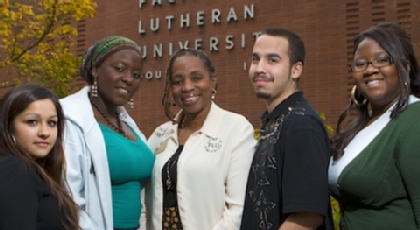
student will call home,” Cunningham said. “We want the students to know that they can come to PLU and be their authentic self.” That’s true for Adrian Aguilar ’11. Born in Mexico and raised in King City, Calif., he is a first-generation Latino working on his degree in social work. For him, there have been challenges going to PLU, not the least of which being that, coming from a high school that was 75 percent Latino, there aren’t many attending PLU. But he is comfortable here – he loves the community
-
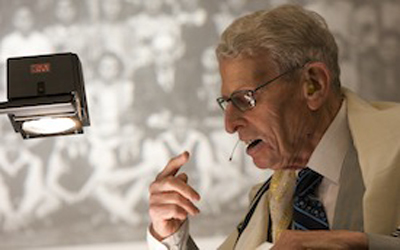
audience that the power of ordinariness lay not only in evil, but also in good. “I want to impress upon you the power you have as an ordinary person in a world with genocide,” said Waller. After referring to the audience as people of privilege the whole time, he advised them of the vast responsibility attached to that privilege, describing the Social Contagion theory as a call to action. According to this theory, one’s opinions hold at least some weight to the approximate thousand people within three
-
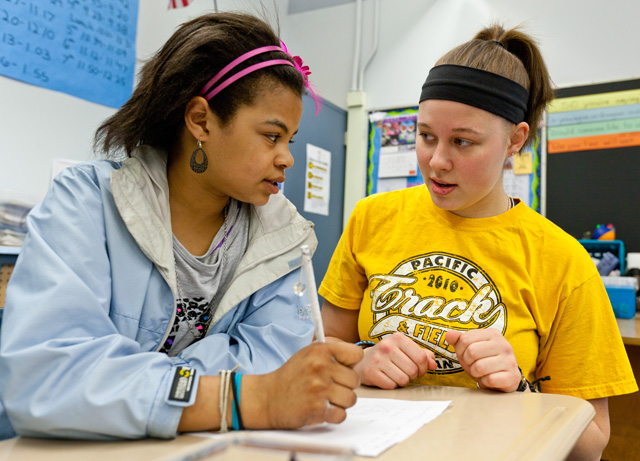
students truly respond to them and are very open to get their assistance.”Kathryn Bullock ‘12 started Club Keithley her sophomore year. She had a passion for helping children who haven’t always had the easiest path. Bullock hopes to continue that passion when she graduates by working as a social worker with at risk youth. Having PLU students like Castor in her class gives Denis Allen more time to instruct and students an extra person to help them figure out their math problems. It started with a few
-

students truly respond to them and are very open to get their assistance.”Kathryn Bullock ‘12 started Club Keithley her sophomore year. She had a passion for helping children who haven’t always had the easiest path. Bullock hopes to continue that passion when she graduates by working as a social worker with at risk youth. Having PLU students like Castor in her class gives Denise Allen more time to instruct and students an extra person to help them figure out their math problems. It started with a few
-
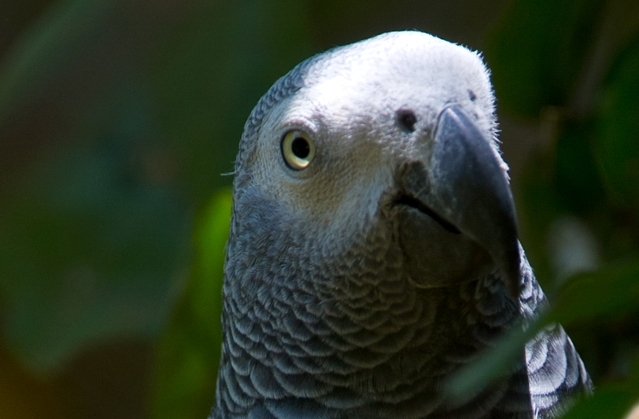
charismatic, this social, ripped from the rainforest and away from their flocks, and isolated in a small cage,” he says. Spreading their wings Which brings us back to the rescued parrots—who refused to leave the enclosure. “So we expect that we will lift the hatch, and they will fly to freedom,” Bergman continues. “But not one of the birds even peeks out. The birds are so suspicious—rightly so; they don’t trust us.” The press left. Goodall left. Bergman and Granum listened to the birds whistling to each
-

think the value of literature and writing is even more paramount as we move forward, because it’s acting as kind of a resistance to forces in our culture that want to reduce or simplify experience,” Barot said. “What literature does is restore complexity to the things that people feel and do and think, and celebrate complex emotional, social, intellectual experiences.” As for the future of the Rainier Writing Workshop, Barot looks backward and forward, always with the founders’ vision—and
-

, fostered or adopted in non-Indian homes. Officials claimed to be acting in ‘the best interests of the child,’ while critics charged that social workers and court officials were using ‘ethnocentric and middle-class criteria’ to remove children unnecessarily. In fact, writes the author, the removals were acts of cost-cutting disguised as caring: Neither federal nor state governments had to fund the care of American Indian children once private families adopted them.” Jacobs’ 10-year, two-continent
-
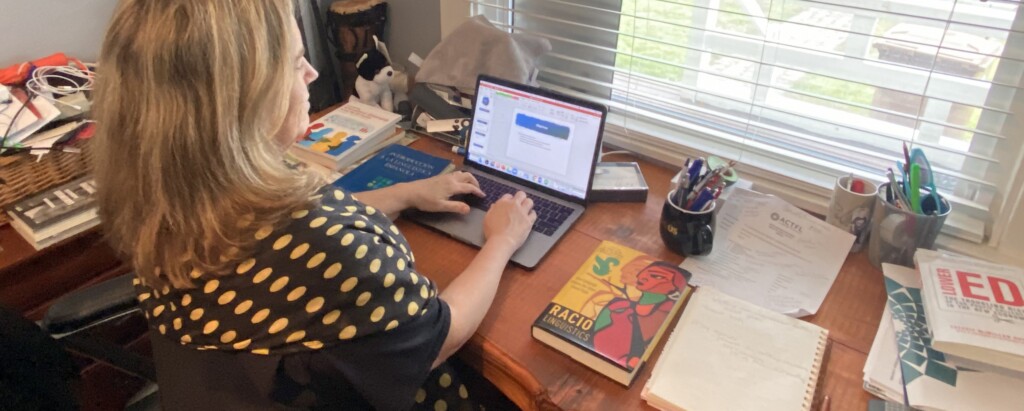
we’ve just been there to listen to each other. The larger language teaching profession nationally has been amazing as well — so many free, online webinars, Facebook Live sessions, Google docs of resources, and virtual book clubs. Even though we are practicing social distancing, in many ways we are more connected than ever. Read Previous Prof. Gregory Youtz talks transitioning classrooms and teaching styles to distance learning Read Next PLU donates medical supplies to help Pierce County in fight
Do you have any feedback for us? If so, feel free to use our Feedback Form.


